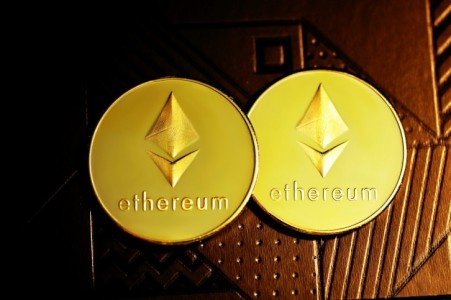Spot Ethereum ETFs Have Gained Initial Approval from the SEC: Launches Are Pending

What Are Spot Ethereum ETFs?
Spot Ethereum ETFs are exchange-traded funds offered by an asset manager. Each fund invests directly in the cryptocurrency Ethereum (ETH).
Traditional and retail investors can buy shares of an ETF in order to own a portion of the fund, potentially earning profits. Retail investors typically invest through brokers.
This approach to investment offers a few advantages. It allows investors to gain exposure to the price of ETH without the need to open a crypto exchange account or self-custodied crypto wallet. ETFs are ideal for traditional investors and those who don’t want to invest directly in crypto.
Which Funds Have Been Approved?
The US Securities and Exchange Commission’s order approves 19b-4 rule changes from three exchanges, allowing those platforms to list and trade eight Ethereum ETFs.
The order grants approval to NYSE Arca’s rule change, which will permit the trading of Grayscale and Bitwise’s ETH ETFs, as well as Nasdaq’s rule change, which will permit the trading of BlackRock’s iShares ETF.
The order also grants approval to Cboe’s rule changes, which will permit the trading of ETFs from VanEck, ARK 21 Shares, Invesco, Fidelity, and Franklin Templeton.
What’s the Next Step?
The SEC must now approve S-1 registration statements from each of the above ETFs issuers. (Grayscale aims to convert its existing Ethereum fund to ETF, meaning that it has instead filed an S-3 statement.)
S-1 and S-3 approvals allow asset managers to issue their ETF. By contrast, the SEC’s initial 19b-4 approvals only allow exchanges to list and trade the relevant ETFs.
When Will ETH ETFs Begin Trading?
There is no definite date by which ETH ETFs will begin trading. However, JP Morgan believes that the funds will launch before November.
Could the SEC Reverse its Position?
Unlike in its earlier approval of spot Bitcoin ETFs, SEC commissioners did not vote on ETH ETF approvals and have not published comments on the decision.
Instead, the order indicates that the decision was made through delegated authority.
Bloomberg ETF analyst James Seyffart has suggested that commissioners could challenge the decision and ask for a review and vote. However, Seyffart believes that the SEC’s decision cannot be reversed, as the agency would not grant authority unless it was certain that a vote would result in an approval.
Were Politics a Factor in the Approval?
Many commentators believe the the SEC approved the funds for political reasons.
The SEC is chaired by Gary Gensler, a Democratic party member appointed by President Joe Biden in 2021. The SEC appeared to be ready to reject the ETH ETF proposals until Republican U.S. presidential candidate Donald Trump expressed support for crypto policies in May.
One anonymous source told The Block that that the SEC reversed its position to avoid alienating pro-cryptocurrency voters as elections approach. Others, including Coinbase’s David Han, Ark Invest’s Cathie Wood, and Bankless’ Ryan Sean Adams, have expressed the now-widespread belief.
However, the SEC has not commented on the matter, and any political explanations are speculative.
What Are the Limitations of ETFs?
Spot ETH ETFs have a few limitations.
-
Lack of investor utility: Spot ETH ETFs investors will not have access to ETH tokens, meaning that they will not be able to spend ETH, use it on decentralized finance (DeFi) platforms, purchase NFTs, or engage in staking. Those who wish to do so should instead invest in ETH through crypto exchanges or hold ETH in a self-custodied crypto wallet.
-
Lack of administrator staking: Several recent applications proposed allowing asset managers and other fund administrators to earn additional ETH by staking. Those proposals suggested that staking revenue could be treated as income for the funds. However, ETF applicants have since removed the possibility of staking.
-
Cash creation and redemption: Asset managers and other administrators will only be allowed to create and redeem shares with cash, rather than in-kind cryptocurrency transactions. BlackRock mentioned the possibility of eventual in-kind creations and redemptions in a May 29 S-1 amendment but said approval is uncertain.
Are There Alternatives?
Although spot ETH ETFs are not yet available, numerous alternatives are available.
-
Ethereum futures ETFs: The SEC approved several Ethereum futures ETFs in 2023.
-
Spot Bitcoin ETFs: The SEC approved spot Bitcoin ETFs, which provide exposure to ETH’s main competitor Bitcoin (BTC), in January 2024. See our list of top Bitcoin ETFs for more information.
-
Non-U.S. ETH ETPs: Investors outside of the U.S. can invest in Ethereum exchange traded products (ETPs). Some launches are recent: Hong Kong debuted BTC and ETH ETPs in April 2024, while the London Stock Exchange began to offer Bitcoin and Ethereum ETPs on May 28, 2024. EU-focused products also exist.
-
Ethereum (ETH) tokens: Investors can purchase ETH on crypto exchanges, providing price exposure as well as on-chain utility. See Bitrates’ list of exchanges to get started.



